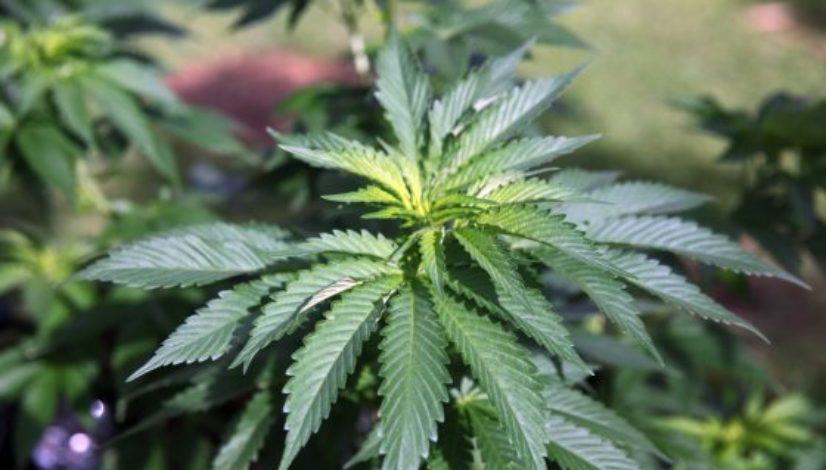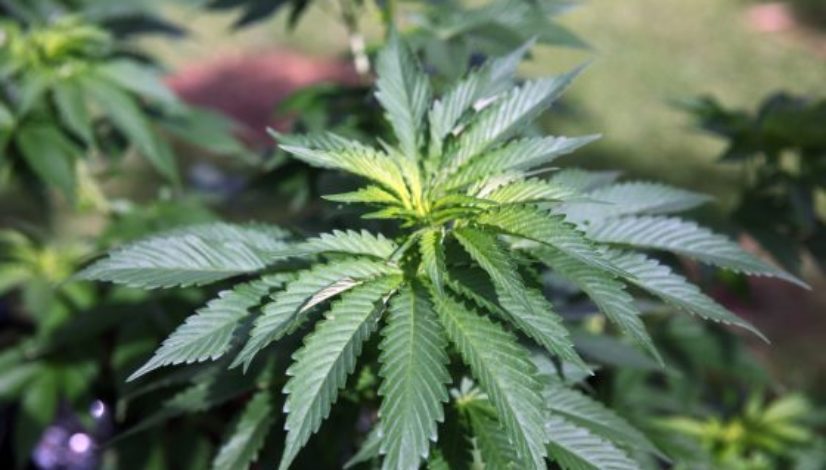Maryland medical marijuana bill could boost African American businesses

Published: Nov 13, 2017, 1:24 pm • Updated: Nov 13, 2017, 1:25 pm
By Oluwatomike Adeboyejo, capital News Service
ANNAPOLIS, Md. — After a four-year wait to provide medical cannabis to patients, the drug could be available to Marylanders as early as this month, according to industry stakeholders.
“I think we could see product in November, with increase in December and a steady flow from all operators in the new year,” said Wendy Bronfein, the marketing director for Curio Wellness, a company in Lutherville, Maryland, awarded two licenses to cultivate and process medical marijuana.
However, racial diversity in the state’s medical marijuana industry is wanting, and some lawmakers said they are planning to introduce a bill early next session to grant licenses to African-American business owners.
A disparity study ordered by Republican Gov. Larry Hogan in April and due in December focuses on whether minorities who sought a license in the cannabis industry were at a disadvantage.
The study was prompted after the Maryland Legislative Black Caucus raised concerns about the lack of African-American involvement in the industry.
Of the 321 business owners granted preliminary licenses to grow, distribute or process the drug, 208 were white men or women and the remaining 113 identified as a member of a minority group or as multiracial. Of these, 55 — about 17 percent — were black men and women, according to the Maryland Medical Cannabis Commission.
“It’s shameful in a state like Maryland where we have one-third of the population of the state, one-third is African American,” said Delegate Cheryl Glenn, D-Baltimore, chairwoman of the Legislative Black Caucus.
As the General Assembly’s January session approaches, members of the Black Caucus told the University of Maryland’s Capital News Service they have begun drafting a bill that would award 10 new licenses for growers and processors specifically targeted at African-Americans interested in the industry.
They will move forward with their legislation regardless of the outcome of a Hogan’s disparity study, Glenn said.
“I will bank on it that we’ll come away from the table with five new licenses for growers and five new licenses for processors that will be awarded based on the results of the disparity study. What does that mean? That means these licenses will go to, in large part, African Americans,” said Glenn.
A weighted scoring system will give businesses an advantage of being awarded a particular license if they have a certain percentage of African-American ownership, Glenn said.
A “compassionate use fund” will be part of the legislation in order to make medical marijuana affordable for patients in Maryland. The fund will be financed based on the fees that licensees in the industry must pay, Glenn said.
Related stories
- Maryland medical marijuana commission needs a new director
- Maryland cannabis businesses cleared of conflict of interest, approved for launch
- Maryland medical cannabiz lawsuit given green light
- Without Congressional action, medical marijuana at risk from Sessions
- Fearing feds, pharmacy school cancels classes on growing medical marijuana
“Marijuana is still an illegal drug, according to the federal government. Your insurance will not pay for marijuana even though it is medical marijuana. So what does that mean? That means it becomes a rich man’s struggle. We’re not gonna have that,” said Glenn, whose mother died of cancer and is the commission’s namesake.
Marylanders who are insured through the state’s Medicare and Medicaid programs will not be covered for medical cannabis, said Brittany Fowler, spokeswoman for the Maryland health department.
The legislation has been numbered Senate Bill 1 and House Bill 2, and should gain initial approval as an emergency bill during a joint hearing by the House and the Senate during the first weeks of the session — which is scheduled to start Jan. 10 — Glenn said.
Members of the Legislative Black Caucus said they intend to use the upcoming election as leverage for the bill.
“Next year is election year . so timing is everything . I am very, very sure that this is going to be taken care of,” Glenn said.
Cannabis companies have said that the drug is likely to be available to patients this month.
ForwardGro Inc., the first licensed medical marijuana grower, successfully passed the state’s cannabis assessment this year, said Darrell Carrington, the medical cannabis director of Greenwill Consulting Group LLC.
Patients will be able to get cannabis in a variety of forms such as lotion, pills and transdermal patches, said Michael Klein, the chief operating officer of Wellness Solutions in Frederick, Maryland.
The industry has been projected to open toward the end of the year, according to Brian Lopez, the chairman of the Maryland Medical Cannabis Commission.
“The industry is starting to move forward,” Lopez said late last month. “We hope we are going to have another 20 to 30 dispensaries by the end of the year and at that point we will have an industry that is starting to receive product consistently around the state. But with that we are going to also, I’m sure, see some growing pains.”
Maryland still faces a wide range of challenges as the industry starts up. The commission has not decided how to regulate how dispensaries will serve out-of-state patients, deal with the green waste from the cannabis, or address fraudulent activity within the industry, said Lopez.
“I’m sure we are going to hit road blocks, but we plan to work through them in a very consistent manner and with diligence,” Lopez said.
Maryland is considered to have one of the slowest medical cannabis rollouts in the nation, hampered by several delays that arose during the four-year process since it was legalized.
Stakeholders in the industry have pointed to the lack of funding of the Maryland Medical Cannabis Commission in its beginning stages, and to lawsuits filed against the commission, as major stumbling blocks.
In 2016, GTI — Green Thumb Industries — a Bethesda, Maryland-based company that was originally awarded pre-approved licenses as a grower, filed a lawsuit against the commission for retracting its licenses in order to create geographical diversity.
The commission, which as of mid-2017 had 10 new members, made the decision to retract the license from GTI after the Maryland Attorney General Brian E. Frosh stated in 2016 that the commission must ensure geographical diversity when choosing applicants.
GTI attempted to work with the Black Caucus to reverse the decision during the 2017 General Assembly session through legislation, which would have awarded them a license, said Delegate Pamela Queen D-Montgomery, financial secretary for the Black Caucus.
The legislation failed in the last 90 minutes of the session and there were no additional medical marijuana growing licenses given to any companies owned by minorities, Queen said.
The Legislative Black Caucus earlier this year asked Senate President Thomas V. “Mike” Miller Jr., D-Prince George’s, Charles and Calvert, and Speaker of the House Michael Busch, D-Anne Arundel, to reconvene the General Assembly to Annapolis for a one-day session to pass a law expanding the medical marijuana industry. However, the request was denied.
In another lawsuit against the commission, filed in October 2016 by Alternative Medicine Maryland, a predominantly African-American owned business, Judge Barry Williams ruled in May that if he finds that the commission unlawfully disregarded racial diversity during the application process for licenses he reserves the right to revoke the licenses of those who were pre-approved.
This could ultimately shut down the industry, according to John Pica, a lobbyist and attorney representing Alternative Medicine Maryland.
Frosh also had said it would be unlawful to seek racial diversity in the application process without there being a history of racial disparities in the nascent cannabis industry.
“While it is still too soon to say for certain when we can expect a final analysis, we are encouraged and grateful to collaborate with these offices as we pursue this important work,” said Medical Cannabis Commission Executive Director Patrick Jameson, who announced his resignation from the commission on Thursday.
Queen said she thinks that a major issue that negatively affected the industry was the poor funding the commission initially received from the state.
When the panel was created as the Natalie M. LaPrade Medical Marijuana Commission in 2013, its purpose was to oversee academic medical intuitions in distributing medical marijuana. However, the institutions were unwilling to distribute the drug because it is illegal under federal law.
In 2015, when the commission was recreated as the Natalie M. LaPrade Medical Cannabis Commission, they were given a greater responsibility to evaluate and certify businesses to grow, process and distribute the drug.
The commission received $140,795 in fiscal year 2015 and $2,540,331 in fiscal year 2017. The increase of funding over time was used to hire more employees, contractual labor, office spaces that can support the growing staff, travel expenses and to pay Towson University for scoring license applications for the industry, according to Maryland Department of Budget and Management.
Topics: Cheryl Glenn, diversity, Maryland, Maryland Legislative Black Caucus, Maryland Medical Cannabis Commission, racial disparity




